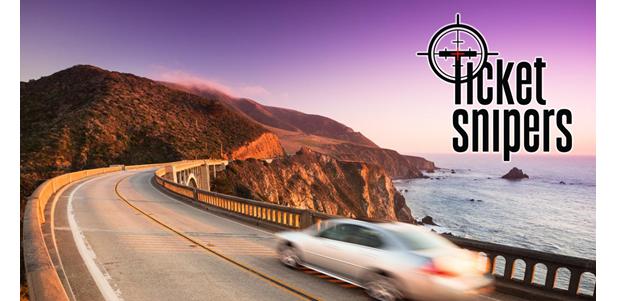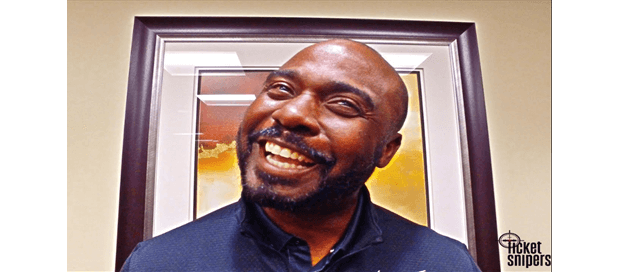
For your average individual, a traffic citation will likely be the only run-in they have with the law. As a result, the most people are not aware of the options available to them when they receive a ticket, let alone the laws themselves. Fortunately Ticket Snipers is here to dismiss the citation without any court appearances.
When an individual looks into their options to fight a ticket, they always have the million-dollar question at their lips:
“What are my chances to win my case?”
The court system is not an algorithm into which you can insert your type of violation, a couple of situational details and your driving history to receive a probability of success. The individual actors involved have the discretion to affect the outcome just as much as those details.
That being said, there are steps a person can take to put themselves in the best position to succeed. The starting point for the path towards success is called a Trial by Written Declaration. Ticket Snipers are the industry leaders when it comes to composing a Trial by Written Declaration and can help dismiss your California traffic ticket.
What is Trial by Written Declaration?
If an individual is issued an infraction in California, CVC 40519(b) allows the defendant the option to submit a written plea and challenge to their citation in lieu of appearing in person.
Often when provided with the options to submit a written challenge or have an attorney appear, the average person feels that an in-person appearance will be more impactful and will be more likely to lead them to success.
This is a common misconception of how the trial process works, as the rules of evidence do not allow for an attorney to enter any evidence or testimony without the defendant being present.
What Happens in Court: Expectation vs. Reality
The trial process is supposed to be your opportunity to tell your story. Unfortunately, unless you are physically present alongside your attorney, your side of the story, perspective on the situation and interaction with the officer cannot be accounted for. Did another car speed by right before you were pulled over for allegedly speeding? Was the officer unprofessional or disrespectful? Was the roadway unclearly marked? With attorney representation, the court may never hear these details.
Further, with budget cutbacks and overloaded dockets, the goal of the traffic court is efficiency. The opportunity to explore the facts of the case is not as readily afforded as one may be led to believe by television representation of courtrooms. Hundreds of cases are heard in sequence on a daily basis. While you may wait hours for your name to be called, you may only get minutes in front of the Judge. Additionally, in crowded courtrooms the Judges are pressured to set an example, so hopes for leniency or reduced fines are often unrequited.
If the attorney is not successful in obtaining your desired outcome, no further recourse is available and you are bound to the decision on the Judge.

Greater Impact, More Opportunity
In contrast, the Trial by Written Declaration affords you the ability to tell your side of the story and expand on details that you recall from the date of the alleged violation. This can be done while challenging the officer’s allegations. There is no in-person court appearance required. Rather than taking time off of work to sit idly at the courthouse, you can take a leisurely stroll to the Post Office and mail your defense to the court.
Once the court receives the documents, the court clerk adds your case to the docket. Instead of an assembly-line style court hearing, the Judge reviews all of the details of the case privately before rendering a decision.
Finally, if the judgment is not desirable, you have the ability to request a new trial with a different Judge. The original verdict is fully vacated and you have another opportunity for redemption. Because the Trial by Written Declaration option offers two chances to challenge the citation rather than just one, pursuing this avenue doubles the individual’s chance at success.
Officer’s Response
There is a longstanding rumor that officers do show up in court to address their citations, so appearing in court is the best way to ensure a dismissal. Unfortunately, just like many of us are required to attend work meetings as a part of our jobs, appearing in court is a requirement of the officer as a part of his or her duties.
Some officers are paid overtime outside of their normal patrol duties to attend their appearances as where others will stack their court dates on one or two days of the week so attending court does not interfere with their other work. Regardless of an officer’s personal approach, when an individual requests a court date for their citation the court works with the officer to ensure the officer is available to attend.
When a defendant appears in court for their citation and is faced with the unexpected appearance of their citing officer, the officer has the opportunity to hear and respond to the specific arguments made by the defendant using their years of experience of issuing and upholding traffic citations. This puts the officer at a distinct advantage in front of the Judge.
In contrast, when an officer’s response is requested for a Trial by Written Declaration, they do not have the same overtime incentives or designated days set aside to compose a declaration of their own.
Even though they may not have the same incentives to submit a defense of their own, it’s always best to be prepared for an officer to reply. In a written trial, the power dynamic between the defendant and the citing officer is reversed. When drafting a declaration, the officer does not have the opportunity to review the arguments laid out in the defendant’s declaration. Rather, they are simply tasked with providing proof of the alleged violation beyond a reasonable doubt. Meanwhile, the citation itself contains the details regarding the officer’s perspective and the evidence the officer supposedly has available, all of which can be challenged.
As mentioned previously, there is a new trial option if the Trial by Written Declaration is not successful. Prior to obtaining a new trial, the defendant also has the ability to request the officer’s declaration from the courthouse, providing them with invaluable insight into the officer’s defense strategy.
Why haven’t I heard of Trial by Written Declaration?
For some readers, this process may sound too good to be true. However, if you are reading this citation with a ticket in hand, turn it over and you will find Trial by Written Declaration listed among your options on the back.
At the end of the day, traffic citations are not a common occurrence, so most people have little reason to know or care about what options are available should a violation occur. That being said, California traffic citations are some of the most expensive in the country; it is important to know your rights when it comes to addressing them. Attorney representation is great when it is necessary, but if you have a traffic ticket, Trial by Written Declaration is the best way to go.
Activate Social Media:


